Why I’m taking Tony Robbins more seriously as a Counsellor.
I’ve always admired Tony Robbins as a speaker. His ability to build rapport and his mastery as a coach have always stood out to me. However, I now see his methods in a new light, particularly regarding their impact on deeply troubled individuals.
From Skepticism to a Shift in Perspective
While I respected his skills as a coach, I was initially skeptical about his approach to helping people in crisis. At first, I wasn’t sure how effective it truly was.
As a counsellor, I often work with individuals who need deep emotional support. In contrast, Robbins uses state-breaking techniques to help people regain control quickly. I wondered about the long-term effectiveness of these methods. Could they truly help someone in a deeply troubled space?
In my recent ebook, Personal Growth Reflections, I mentioned Robbins’ ideas as being powerful in a coaching context—helping people level up in life. But I wasn’t sure if they were suitable for those struggling with serious emotional difficulties.
What Changed? A Groundbreaking Study
Over the weekend, I watched a powerful interview between Tony Robbins and psychologist Jordan Peterson. You can watch it here.
In this conversation, they discussed a clinical study measuring the long-term impact of Robbins’ events. The results were astonishing—showing dramatic reductions in depression and suicidality. These findings were peer-reviewed and published in the Journal of Psychiatry.
As a result, seeing this research changed my perspective. It proved beyond doubt that Robbins’ techniques aren’t just motivational hype—they genuinely transform people’s lives long after the event is over.
Training the Body and Emotions for Lasting Change
One key takeaway from the interview was Robbins’ belief in training both the body and emotions.
He emphasizes taking charge of your state, making a decision to live in a beautiful state, and using physical movement and mental conditioning to shift emotions rapidly.
At first, I wondered if this was just a temporary boost. But now, I see how structured coaching techniques—when applied correctly—can have a long-term effect on emotional resilience.
The Dark Side of Traditional Counselling?
For some time now, I’ve acknowledged a potential pitfall in traditional counselling—the risk of reinforcing negative emotional states.
While counselling provides a safe space to explore emotions, Robbins’ approach focuses on immediate action and empowerment. Watching this interview made me reconsider how I might integrate more proactive coaching techniques into my practice.
The Two Master Skills for a Great Life
Robbins often speaks about two essential life skills:
- The Science of Success – Learning the strategies and mindset to achieve results.
- The Art of Fulfillment – Finding deep personal meaning beyond external success.
Most importantly, what I love about this idea is that both of these are learnable skills. No matter where you are in life, you can develop these abilities to create lasting happiness and success.
Watch this short video where Robbins explains this concept here.
See Robbins’ Approach in Action
If you want to see how Robbins helps people shift their emotional state instantly, I highly recommend watching his Netflix documentary, I Am Not Your Guru.
For a quick glimpse, here’s one of my favorite clips where he helps someone in real-time watch it here.
Final Thoughts: Is Robbins Worth Exploring?
Ultimately, if you’re curious about real transformation, I’d strongly encourage you to check out his work.
In fact, he has an upcoming event this Friday to Sunday that’s completely free to attend online. You can claim your spot here.
Work With Me
If you’d like to explore counselling and coaching with me, you can book a session directly here.
🔹 Learn more about my counselling packages here.
🔹 Explore my digital program here.
Let’s work together to create the breakthroughs you need.
Phil
📍 www.newbeginningstherapy.co.nz
📧 philip@newbeginningstherapy.co.nz
📞 021 058 3234


Pingback: What is a healthy relationship ? -
Very insightful. I have alwaus admired mavericks who go their own way, ignoring convention and just finding what works, and to find out that studies have validated Tony is so cool.